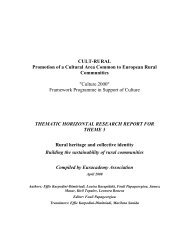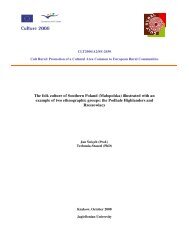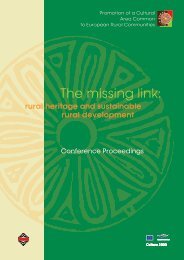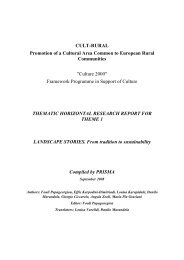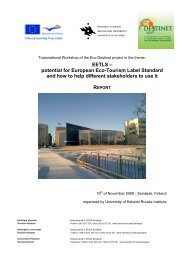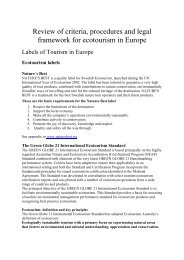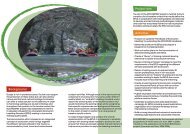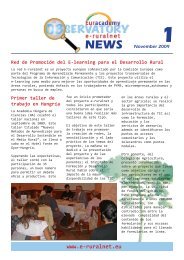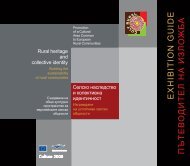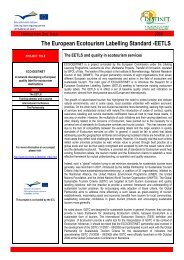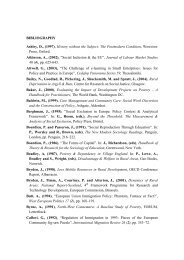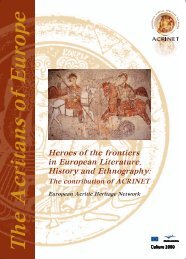Rapporteur seminar report
Rapporteur seminar report
Rapporteur seminar report
Create successful ePaper yourself
Turn your PDF publications into a flip-book with our unique Google optimized e-Paper software.
Time is the final ‘resource’ needed for LLL. EU governments work to a short timeframe of4 to 5 years (between elections), but ongoing education and training programmes may needa longer period of time to achieve sustainable results. This can be an issue for continuingState commitment to funding, to providing finance for trainers and teachers and foressential facilities. Many of the national studies are ongoing, well established and havebroad political support, as with the range of programmes in the UK or with the Act ofIntegration in Denmark. However, the absence of any political commitment, of a properlegal framework for the operations of LLL and the frequent changes of governments andpolicies in Poland were considered problems for the project for young people in rural areas.5. Common Issues / Different IssuesIn the national studies a number of issues emerged which are common both to immigrantsand to marginalised groups in rural areas. First, there are examples of a lack of motivationto participating in LLL, for example among young people in rural areas in Poland wherethere is a limited level of trust of the system and for immigrants in Denmark where one ofthe results was a lack of motivation among the participants and their reluctance to committhe time to take part in programmes. The most successful programmes were those related tothe labour market and where the participants were involved in the promotion, as found inthe Hungarian study, and ‘the level of motivation increased over time’.Second, in almost all studies the absence of adequate funding was identified as a majorproblem. Third, there is the lack of co-ordinated national approaches to LLL, as in dealingwith rural unemployed in Hungary or with the integration of immigrants in Germany,where ‘there is no comprehensive integration programme’.Another common theme in the projects was the focus in many of them on the education ofchildren and young people. In the studies in Greece, Spain and Denmark LLL forimmigrant children and young people is a key part of the overall objectives, in ruralcommunities in Poland, with the small schools initiative and targeting young people, andalso in the UK, with the policies to support children and young people, through theConnexions, Children’s Service, Local Learning and Skills Council programmes.A number of differences can also be detected, for example transport is an issue in ruralareas when it makes access to LLL programmes a problem, as in Poland and the UK –‘rural communities are not easy to reach’- and the availability of quality infrastructure, suchas education and training facilities in rural areas. With immigrants there is the specificproblem of cultural integration and the lack of a tradition of education and a poor level ofbasic education, as in Spanish and German studies.7




